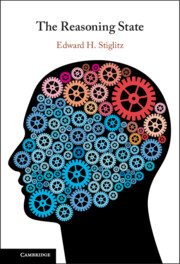3 - Instruments of Credible Reasoning
The Role of Administrative Law
Published online by Cambridge University Press: 16 June 2022
Summary
This chapter is the first of two chapters that uses the theory of the reasoning state to harmonize our understanding of other debates. There are two main existing theories of administrative procedure and law. An older, normative theory from the legal tradition argues that administrative law exists to promote values of fairness, transparency, and deliberation. A more recent theory, advocated by Mat McCubbins, Roger Noll, and Barry Weingast, is that administrative law exists to promote political control over administrative bodies. The theory of the reasoning state suggests another view. It indicates the positive value of fairness, transparency, and deliberation in administrative law. Those features, long thought central by legal scholars, lacked a positive foundation. Yet they all serve to promote the publicly credible reasoning of administrative bodies, core to the political value of delegated authority.
Keywords
Information
- Type
- Chapter
- Information
- The Reasoning State , pp. 71 - 100Publisher: Cambridge University PressPrint publication year: 2022
